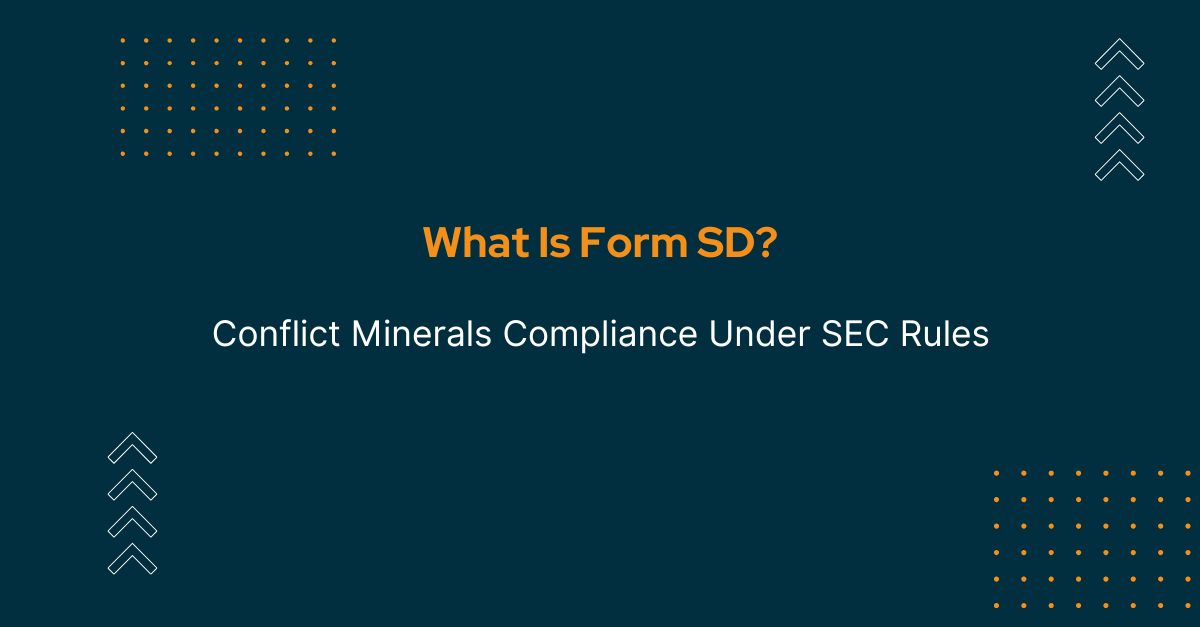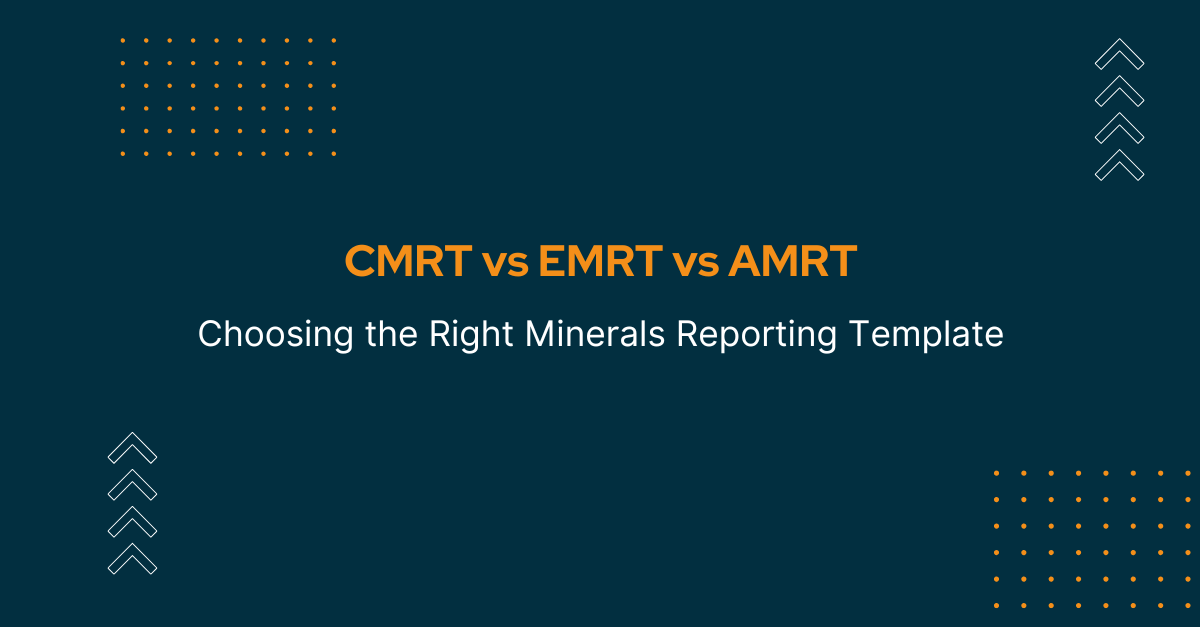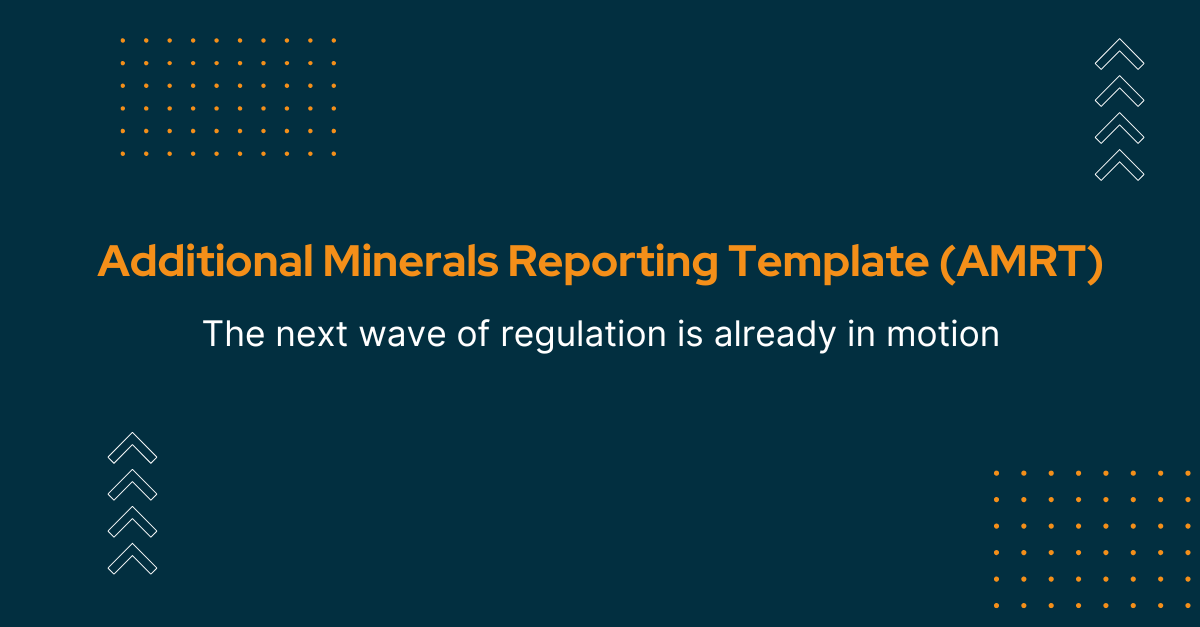Table of Contents
Responsible Sourcing Is No Longer a Checkbox—It’s a Business Imperative
Section 1502 of the Dodd-Frank Act gave us the foundation. But in 2025, regulatory pressure, investor scrutiny, and ESG commitments have turned responsible sourcing into a boardroom priority. For manufacturers, especially in electronics, automotive, and battery industries, conflict minerals reporting is now about real transparency, not just Form SD compliance.
Rising Expectations: Why Basic CMRT Compliance Isn’t Enough
A decade ago, companies focused solely on 3TG (tin, tungsten, tantalum, and gold) from the DRC. Now, your entire supply chain is under the microscope.
Expect regulators, NGOs, and investors to ask:
- “What about cobalt, lithium, and rare earths?”
- “Do you screen for child labor or sanctioned entities?”
- “How robust is your Reasonable Country of Origin Inquiry (RCOI)?”
The bar has been raised—and simply meeting Form SD obligations won’t cut it.
Conflict minerals due diligence is evolving rapidly
- Sanctions on African smelters have disrupted supply chains.
- The EU Battery Regulation now mandates lithium and aluminum due diligence.
- Investors and NGOs expect traceability and real impact data.
Companies that aren’t evolving their programs risk being left behind—or worse, publicly called out for weak transparency.
Key CMRT Challenges for Manufacturers
The conflict minerals landscape is growing more complex:
- Smelter Sanctions: Due diligence must now include beneficial ownership analysis.
- Environmental & Social Harm: From deforestation to child labor—your program must address E, S, and G risks.
- Global Regulatory Expansion: From SEC Form SD to EU regulations, the list is growing.
Smelters: Bottleneck or Breakthrough?
Smelters remain the most critical—and vulnerable—tier in your supply chain. They are the gatekeepers of origin data.
To manage smelter risks:
- Enhance your RCOI process with verified smelter lists.
- Collaborate via RMAP, CMRT, and IPSA standards.
- Use tools like AI-powered smelter validation to catch red flags before audits do.
Proactive CMRT Sourcing Programs: The New Standard
The best manufacturers are building next-gen due diligence programs by:
- Expanding beyond 3TG: Adding cobalt, mica, lithium, graphite, etc.
- Integrating ESG scoring into sourcing decisions.
- Engaging with suppliers across tiers using digital platforms like Acquis.
This isn’t about ticking boxes—it’s about building resilient, responsible, and transparent supply chains.
Data-Driven CMRT Due Diligence: Your Compliance Backbone
Leading teams rely on:
- Automated CMRT and EMRT workflows
- Real-time smelter and risk flagging
- Collaborative supplier platforms for traceability
If your team is still relying on spreadsheets or PDF checklists, you’re falling behind.
Does Your Responsible Sourcing Program Need a Revamp?
Ask yourself:
- Is your RCOI traceable and audit-ready?
- Are you ready for EU Corporate Sustainability Due Diligence or the UFLPA?
- Can your system flag high-risk smelters in real time?
If you’re unsure, now is the time to rebuild.
Download The Complete Guide to Conflict Minerals Reporting ebook here
Competitive Edge: CMRT Transparency That Builds Trust
Proactive conflict minerals reporting isn’t just compliance—it’s a strategic differentiator.
Brands that can prove:
- Clean supply chains
- Verified smelters
- Impact-driven sourcing
…win the trust of regulators, customers, and investors.
Ready to Scale a Real Responsible Minerals Program?
Acquis helps manufacturers move beyond Form SD with:
- CMRT + EMRT automation
- Verified smelter validation
- AI-powered risk detection
- RCOI + IPSA audit readiness
Book a demo with Acquis and build your supply chain like your brand depends on it—because it does.
Conflict minerals reporting in 2025 is no longer about checking boxes. It’s about owning your supply chain risks, proving ESG impact, and leading with transparency.



